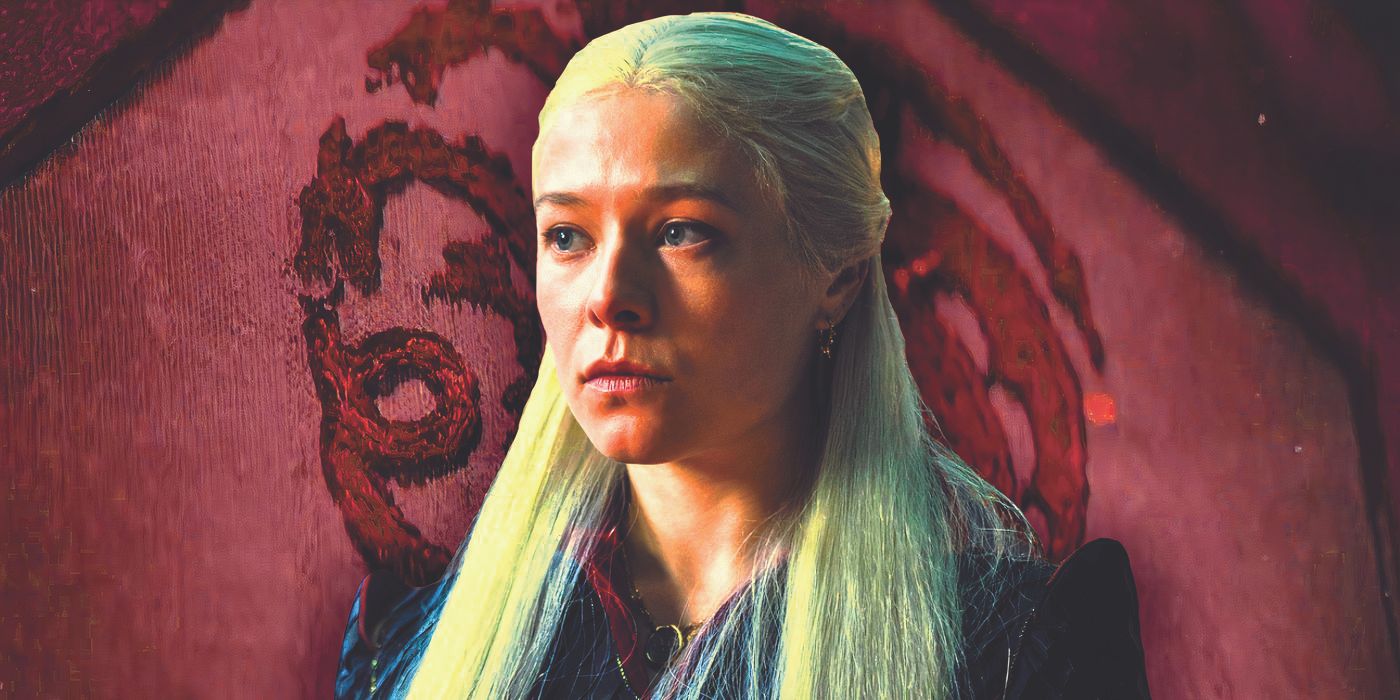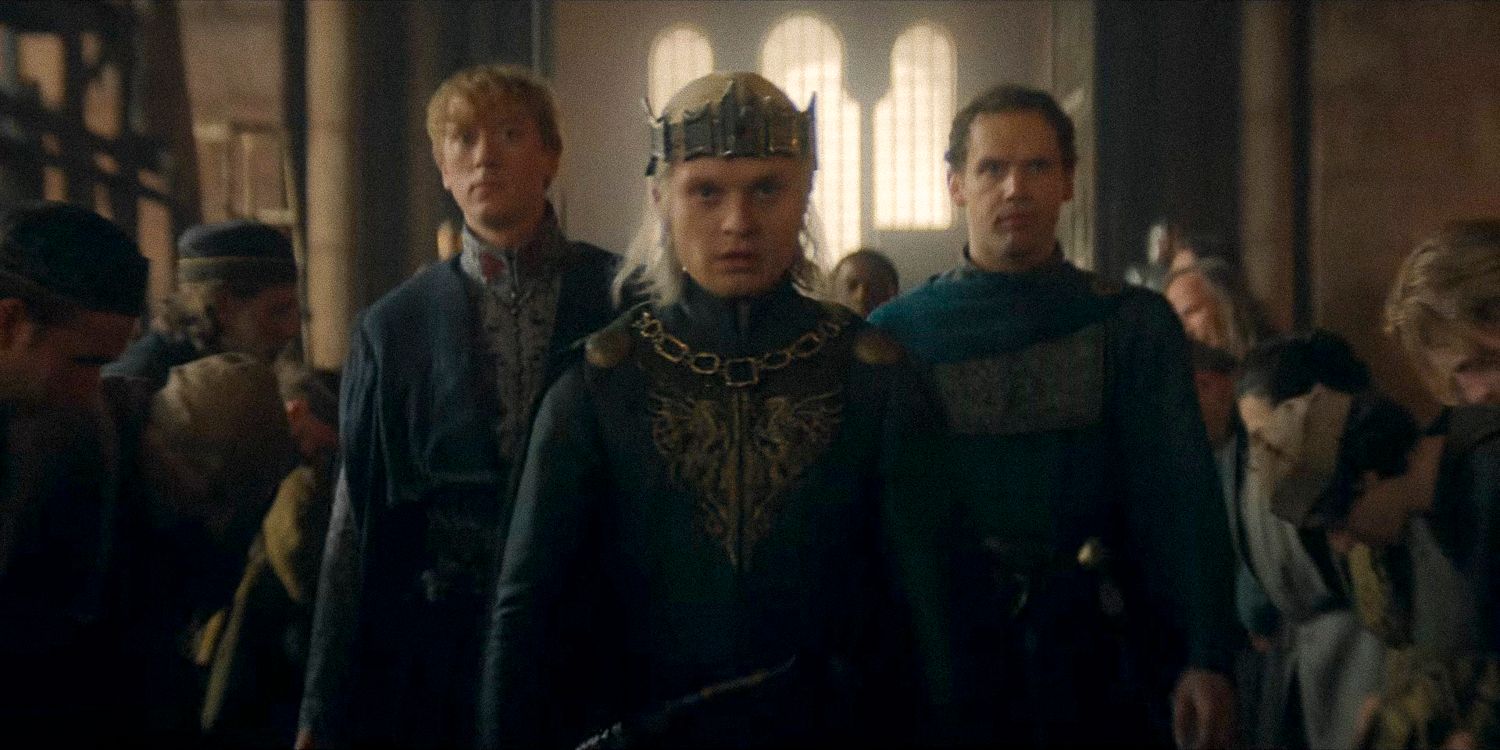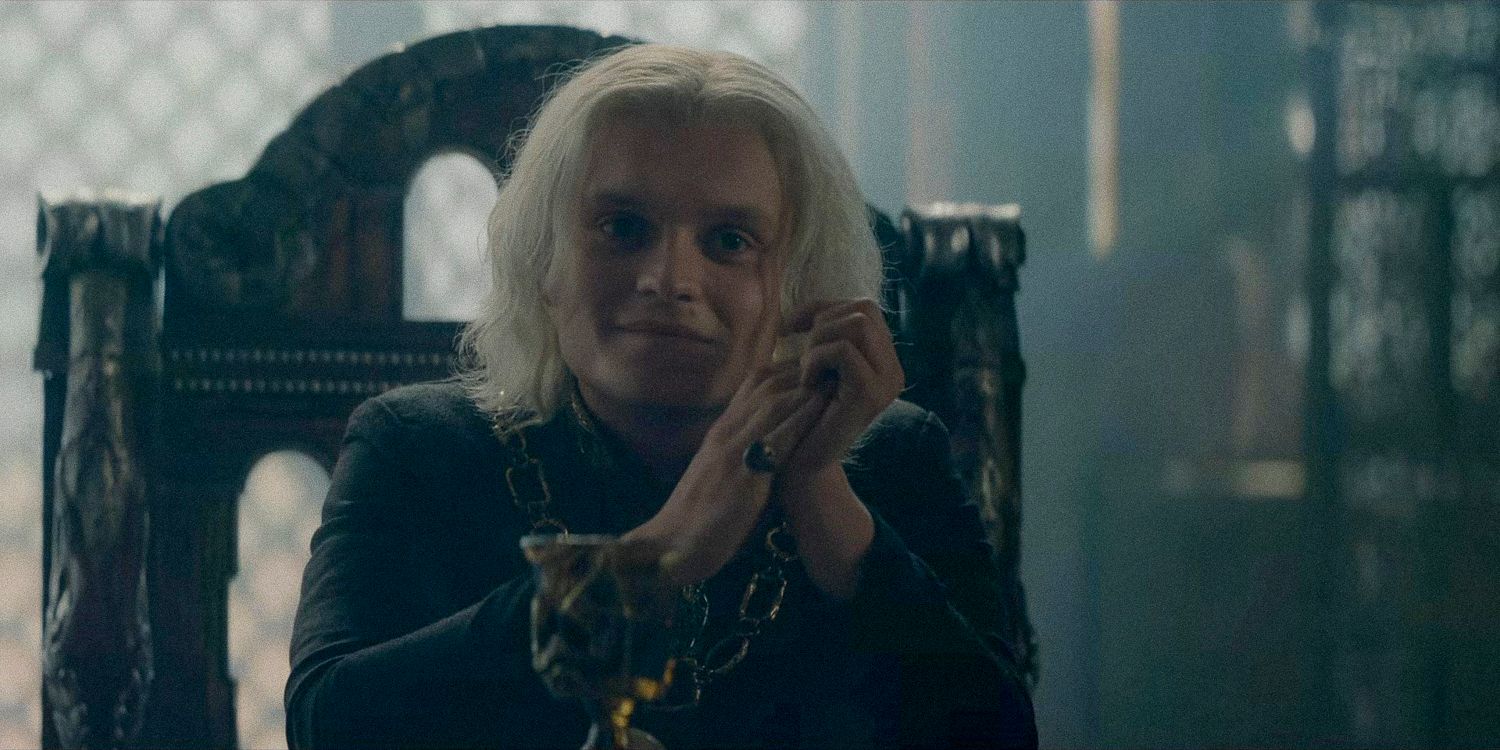King Aegon II’s Nickname Explained & What He Really Ends Up Being Called
Summary
- Aegon II Targaryen gains nickname “The Magnanimous” in House of the Dragon, but it doesn’t quite fit his character as a ruler.
- Aegon is portrayed in season 2 as trying to show care for his people, but he struggles with the practicality of meeting all their needs.
- Despite being called “The Magnanimous,” Aegon is known in history as “The Usurper” and “The Elder” in Game of Thrones lore.
House of the Dragon season 2 sees Aegon II Targaryen referred to as “The Magnanimous,” a nickname that’s original to the show. The Game of Thrones prequel series is based on the book Fire & Blood by George R.R. Martin, a fictional history text covering the Targaryen dynasty. Because of the zoomed-out nature of the book, the TV adaptation writers are tasked with filling in gaps in interpersonal details, including aspects of Aegon’s character. In the House of the Dragon season 2 cast, he’s played by actor Tom Glynn-Carney.
House of the Dragon season 1 saw the build-up toward a civil war known as the Dance of the Dragons, where two potential candidates to succeed King Viserys Targaryen are at odds for who has the better claim to the throne, dividing the realm into the Black and Green factions. Season 1 saw Aegon primarily as an apathetic, immature character with little interest in politics, while season 2 picks up his story after he’s spent a brief period of time as king. While Aegon still isn’t a great leader, he’s warming up to the ultimate power of being king.
What King Aegon “The Magnanimous” Means – And Does It Really Fit?
The Term “Magnanimous” Doesn’t Really Fit Aegon’s Character
In season 2, episode 1, Aegon sits on the Iron Throne to hear requests from citizens of the realm. His arrival is announced in the throne room, and he’s referred to as Aegon “The Magnanimous,” a nickname that’s bestowed upon him seemingly on a whim. The term “magnanimous” can be used to describe someone who’s generous and noble, which is largely counterintuitive to what audiences know Aegon to be, as he’s someone who seems to care little for the well-being of the commoners.
There’s part of Aegon that does seem to care, or at the least, he wants to be seen as a benevolent ruler
In the premiere episode, Aegon takes requests from commoners and seems to have a genuine interest in helping them, though Otto Hightower reminds him of the logistical issues in doing so. There’s part of Aegon that does seem to care, or at the least, he wants to be seen as a benevolent ruler, though it’s impractical to meet the wishes of everyone during wartime. Aegon may be shown to have the naivety to think he can help everyone, though “magnanimous” is hardly a word he could be described as.

Related
House Of The Dragon Season 2’s 8 New Characters Explained
House of the Dragon season 2 expands upon its already enormous ensemble, adding characters to each side of the conflict. Here’s who you need to know.
What King Aegon II Targaryen Actually Ends Up Being Known As In Game Of Thrones History
Aegon’s Nicknames Include “The Usurper” & “The Elder”
Many of the kings throughout Targaryen history are referred to by nicknames. Particularly among the five kings named Aegon, they’re distinguished by titles like “The Conqueror” and “the Unworthy.” As for Aegon II, who’s pivotal to House of the Dragon, he’s prominently referred to as Aegon, “The Usurper,” throughout the Dance of the Dragons, mostly by rivals who support Rhaenyra. In Westerosi history, he’s commonly known as Aegon, “The Elder,” as his rule was followed by Aegon III, “The Younger,” which is a naming convention inspired by real-life Ancient Rome to distinguish two family members with the same name.








